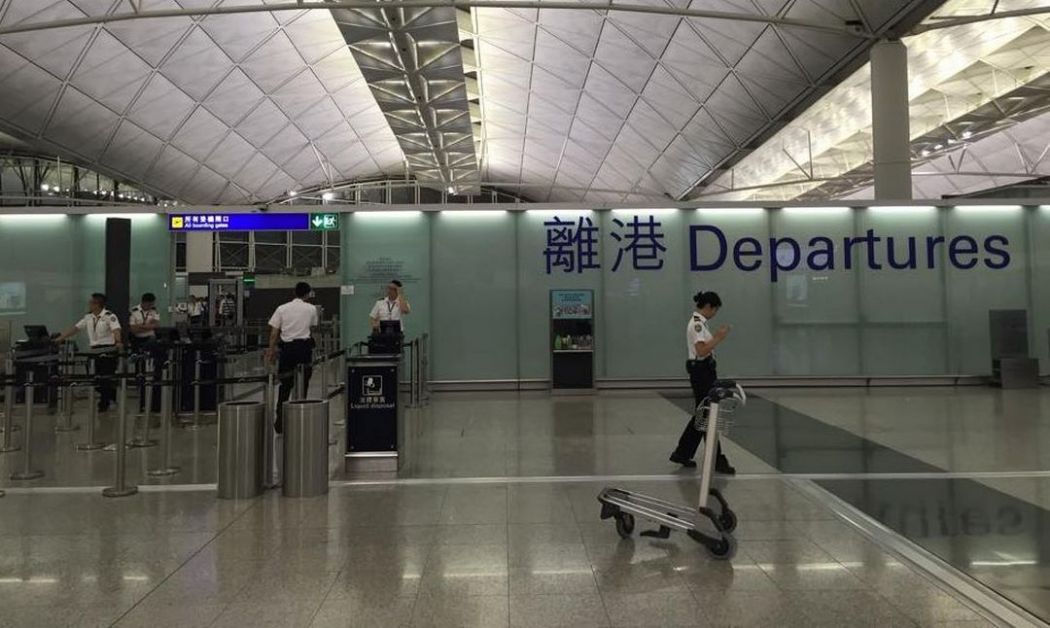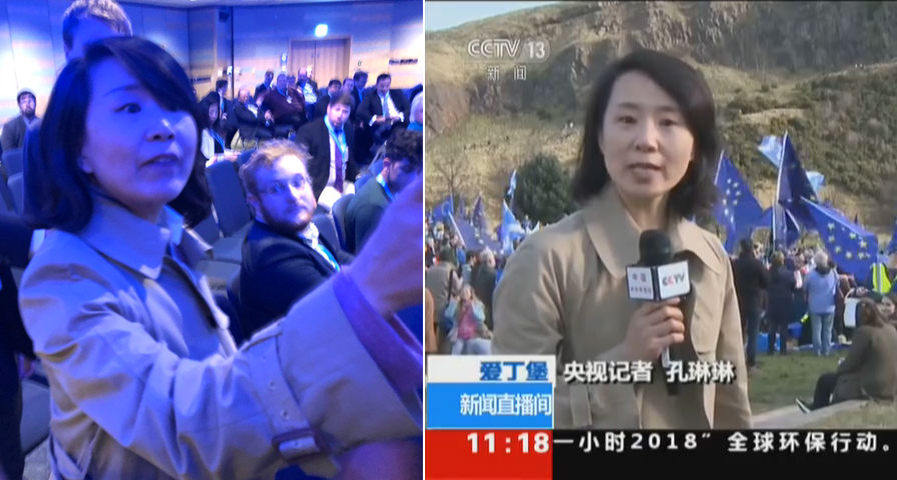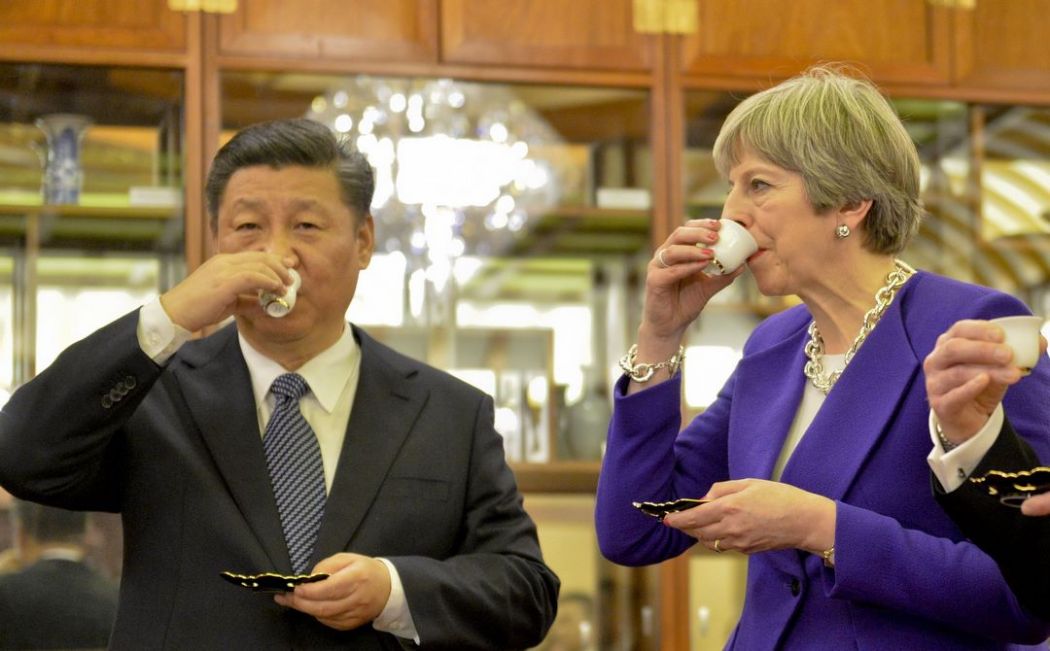A year ago today, I landed in Hong Kong, approached the immigration desk, and was then denied entry: on the direct orders of Beijing.
Hong Kong was the city where I began my working life, where I spent five very happy years working as a journalist, where I witnessed the initial success of ‘one country, two systems’.
Now, from what I have seen over the past few years, that principle – ‘one country, two systems’ – is in tatters. I wish it were not so. I do not support calls for independence. I want, in principle, to advocate for Hong Kong’s autonomy within China. But Xi Jinping is tearing up Deng Xiaoping’s legacy.

A year on from my experience, what has happened?
An experienced, respected, senior journalist – the Asia News Editor of the Financial Times, Victor Mallet – has been denied a renewal of his work visa. I hope the British Parliament will be as outspoken and robust in protest at this absurd abuse of freedom of expression as they were in my own case. I hope that the business community will wake up to the dangers that confront them when an editor from the Financial Times – not the Daily Mail – is banned from Hong Kong.
More people have been disqualified from contesting elections, and a Japanese politician was barred. And no answers have been found for missing Hong Kong publisher Gui Minhai.
On a personal level, although this is completely insignificant compared with people who are disappeared, jailed, tortured or threatened in mainland China or Hong Kong, I have been the recipient of five abusive anonymous letters, with Hong Kong stamps and post-marks, in an effort by somebody to intimidate me in my own country. I have written about them, and the media has covered the story. Three have been addressed to my neighbours in my street in London, one to my mother, one to my employers. As a Chinese friend told me, this is a typical Chinese Communist Party tactic in the mainland – discredit me with my neighbours, put pressure on me through my family, threaten my livelihood through my employers. The fact that they think it would work in Britain is absurd.

And then there was the incident at the Conservative Party Conference in Birmingham. I organised that event. I am both the co-founder and Chair of Hong Kong Watch and the co-founder and Deputy Chair of the Conservative Party Human Rights Commission, the two co-hosts of the fringe meeting. I invited Martin Lee, Benny Tai and Nathan Law, because they are three people of three generations for whom I have the utmost respect, and I wanted people in Britain to hear from three generations of democrats about our obligations to the people of Hong Kong.
I have been involved in politics long enough to be familiar with hecklers. If Kong Linlin, the woman who yelled abuse – first at me, then at the other speakers – had simply heckled, I would have defended her right to do so. If she had asked a question or expressed an opinion, no matter how challenging or hostile, as long as she had done so in a calm, reasonable manner, she would have been very welcome to do so. But instead, she yelled and screamed and shouted and refused to stop. I had said that I am pro-China, in the sense that I am pro the people of China and wanted China as a country to succeed, even if I am a critic of the Chinese regime. I had said that I believed it was in China’s interests for Hong Kong to succeed and for the promises to the people of Hong Kong to be honoured. That made her go berserk. She screamed – with a ferocity and venom I have never seen before – that I was anti-China (even though I had just said I was pro-China), that I want to divide China (even though I have been consistently clear that I oppose calls for separation and I support ‘one country, two systems), that I was a liar.

Presumably, later she would have said that I was a ‘tango dancer’ and a ‘prostitute for a thousand years’, the insults with which the last Governor of Hong Kong was laden. When she refused to stop screeching, despite respectful appeals to resume her seat having had her say, she then slapped a young volunteer who politely invited her to leave the event. She slapped him once, she slapped him twice, and then she hit him a third time. Not all of this is captured on the video which went viral, but the third hit is and the continued abuse is. I wonder: is this now how China does diplomacy? It kidnaps the head of Interpol, abducts its most famous actress, and slaps activists of foreign parties in foreign countries.
I remain pro-China. I have spent much of my adult life working with and for the people of China, including Hong Kong, ever since I went to Qingdao in 1992 aged 18. I never imagined then how China, and Hong Kong, would be today. Indeed, I had imagined that both would liberalise, whereas the opposite has happened.
With a heavy heart I have to declare today that I do not believe, based on the evidence of recent years, including the new report of the US Congressional-Executive China Commission released today, that Britain can have any honour, integrity or moral credibility if it does anything other than stand up very firmly, clearly and loudly to Xi Jinping’s regime and say: enough is enough.

Our message should be clearly and unambiguously this: if you trample on an international treaty lodged at the United Nations named the Sino-British Joint Declaration, if you tear up ‘one country, two systems’ as you seem to be doing, and even worse if you incarcerate a million or more Muslims in gulags in Xinjiang and dynamite or close churches throughout the country, not to mention what has happened to human rights lawyers, freedom of expression, Tibet and Taiwan, the days of a longed-for ‘golden era’ are buried and we will stand up for the values and lives that matter. If we fail to deliver that message – not only for the people of China and Hong Kong, but also for our own self-interest – we will have kowtowed so low that Chinese agents won’t just slap us in the face, they will kick us where it hurts and any remaining vestige of our dignity will have been destroyed. It’s time to stand up to China, and in doing so, it’s the only way to have a chance of salvaging a relationship.
